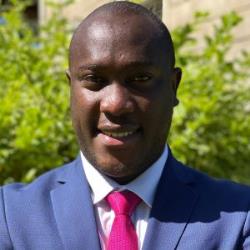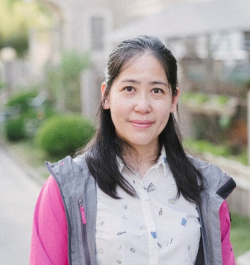Empowering Tomorrow: Digital Inclusion Strategies for Sustainable Development
Shanghai Green Light-Year
Session 181
"Empowering Tomorrow: Digital Inclusion Strategies for a Sustainable Future" delves into the pivotal role of digital inclusion as a catalyst for sustainable development within the framework of Action Line 2: Information and communication infrastructure—an essential foundation for an inclusive information society. This event highlights the critical elements of digital inclusion, including access, affordability, assistive technologies, and ubiquitous computing or communications, in fostering a more equitable and inclusive digital society. It emphasizes the imperative of leveraging digital inclusion strategies to bridge the digital divide, particularly in remote and marginalized areas, and underscores the need for an enabling and competitive environment to ensure universal access to ICT services. Through this lens, the event aims to explore innovative pathways to promote digital inclusion and harness the transformative power of information and communication infrastructure to drive sustainable development.

Wenzhu GONG, currently serving as the Youth Project Director of Shanghai Green Light-Year and the Secretary of RCE Suzhou, attaches great importance to the role of digital technology in advancing her initiatives. Embracing the concept of sustainability, she leverages digital tools for data analysis, research dissemination, and collaboration with global partners. As an advocate for sustainable food education, she actively explores innovative digital platforms and virtual learning environments to engage and educate the youth on the significance of sustainable food systems. Throughout her endeavors, Wenzhu utilizes digital technology to amplify the impact of her projects, fostering widespread awareness and understanding of sustainable practices. Now, Wenzhu serves as a project manager of ESG Performance Visualization project. Through this project, she seeks to utilize digital tools to visually present ESG (Environmental, Social, and Governance) data in an accessible and appealing format for the public and relevant technology enterprises. By empowering university students with knowledge and insights, this project aims to raise awareness about the efforts and strategies of businesses in addressing climate change.

Yawen Zhang is currently acting as an AI/ML Computational Science Manager and Digital Inclusion Expert at Accenture China. She is also an intrapreneur dedicated to social innovation, collaborating with a wide array of partners. Leading a diverse, cross-disciplinary team, she and her colleagues are engaged in social innovation initiatives related to healthy aging, leveraging AI and other digital technologies. Supported by the Accenture Social Innovators Accelerator, they are working in conjunction with partners to help middle-aged and older adults prevent dementia (esp. Alzheimer's Disease). In 2021, she co-authored the Digital Inclusion white paper with partners, marking the first publication to shed light on digital inclusion issues in China.
Publications:
Digital Inclusion White Paper 2021 《数字包容,科技普惠 2021》
Digital Inclusion White Paper 2022 《数字包容,科技普惠 2022》
Selected Awards:
Global Winner of the Accenture Equality Awards, 2022
Global Winner of the Accenture Global Technology Innovation Contest, 2018

Nicholas is the Engagement Lead for the Digital Inclusion Benchmark. He leads multi-stakeholder engagements, partnership building and organising global events.
He is passionate about digital technologies, innovations and their contribution to a sustainable digital future. He previously worked with international development organisations focusing on achieving the Sustainable Development Goals (SDGs) by adopting technologies, such as the Africa Enterprise Challenge Fund (AECF), Mercy Corps AgriFin and SNV Netherlands Development Organisation (Kenya).
Nicholas holds an MSc in Media and Communications from The London School of Economics and Political Science and a B.Tech degree in Journalism from The Technical University of Kenya. He is also an alumnus of LSE’s Programme for African Leadership (PfAL) programme.

Zihan Gao, currently a XJTLU grade two student major in information management and information system. In 2023, she took part in a ESG workshop hold by Shanghai Green Light-Year and firstly found her passion in sustainable food transition. It was then she became a Youth Project Researcher of Green Light-Year and deeply research about the sustainable development, mainly on food and agriculture.
In the period from June to December 2023, Zihan reapplied the World Benchmarking Alliance’s (WBA) benchmarks to evaluate the ESG reports of the 27 most influential Chinese companies in the field of Food and agriculture, then produced the companies’ ESG performance reassessment report and made improvement suggestions. By studying the methodology of WBA’s food and agriculture benchmark, she had a clear structure of the food system and learned that the sustainable food transition is a whole process from the farm to the dinning-table. As her first project-based learning, this research led her position start to change from student to researcher, and made her further reflect the contribution of food companies to the transformation of sustainable food systems instead of just analysis from the theory she learned.
She is now major in the research of digital inclusion, aiming to learn how digital technologies can be used to promotes sustainable food transformation and reduce educational disparities in agricultural cultivation and aquaculture. She hopes to use her academic background in information systems to make the food system more digitization.

Ms. Ni, Deputy Secretary-General of RCE Suzhou, China Member of IUCN CEC and Director of ESG Development and Promotion Center of Shanghai Pudong New Energy Association. She has 20 years of experience in developing and managing international projects with multi-national corporations, international organizations and Chinese governmental agencies. Apart from having been professional project managers and fund-raising managers, she is also a communications expert in managing government relations and corporate relations. She has proven expertise to manage and deliver thematic projects on corporate social responsibility (CSR) and corporate citizenship, public-private partnership, SME Development, microfinance, socially responsible investment (SRI), green financing in China, environmental protection and climate change. A Graduate from Cambridge University (under UK Government’s Chevening Scholarship), she is a passionate networker to bridge Chinese organizations with the rest of the world.
Helen has been working with a local commercial bank, PwC London’s CSR and SME development project in Sichuan with DFID, UNDP China, IFC under the World Bank Group, the Policy Research Center for Environment and Economy under the Ministry of Environmental Protection, UNEP Finance Initiative, and WWF China.
Helen is also a practitioner of green consumption and green lifestyle. As China mainland’s first CIGS thin film distributed solar plant civil user (2014), she has developed some public educational programmes with media for her community and she has received more than 15000 visitors to her home since Aug 2014, mostly teenagers and children. Her green home is refurbished with solar plant, a sharing EV car charging station, a vertical farm using compost made from her kitchen waste and an aquaponics system. Due to the impact of her NGO work, she was awarded “2017 Study UK Award” “Social Impact Award” by British Council and won GGEF Women Eco Game Changer Awards- Asia Eco Innovator Award in 2018. She was also a winner of China “Green Guard Award” of the Eighth “Mother River” Awards-the top national awards for environmental courses.
She founded a native environmental NGO called Green Light-Year in Minhang District, Shanghai in 2015 and Suzhou Green Light-Year in 2018, from promoting green lifestyle in communities, schools and businesses in Shanghai, Zhejiang, Jiangsu and Shandong, to practising Education for Sustainable Development (ESD) in Eastern China. She developed a series of courses teaching residents to invest in home-use solar plants and EV cars, including financial literacy education for affordable renewable energy for teenagers.
She was a member of the policy taskforce under G20 Saudi 2020 on “UN SDGs and Development Cooperation”. She is the only Chinese expert in the policy brief groups of G20. The policy brief is available at:
https://t20saudiarabia.org.sa/en/briefs/Pages/Policy-Brief.aspx?pb=TF7_PB2
Helen is invited by G20 Italy 2021 policy taskforce on Youth Transitions and Transformations through ICT-enabled Education for Climate Change and Sustainable Development. The policy brief is available at: https://www.t20italy.org/2021/09/21/accelerating-youth-led-transformative-actions-through-ict-enabled-education-for-sustainable-development/

Daniel Nicolai is an esteemed scholar, educator, and entrepreneur whose work centers around sustainable development and responsible corporate leadership. He holds a Diplom-Kaufmann degree (equivalent to a Master's in Business Administration) from Humboldt University of Berlin, where he achieved notable recognition for his diploma thesis, "The Honorable Merchant," earning both the Humboldt Prize and the Europa Prize in 2008 and 2009 respectively.
Daniel has made significant contributions to academia through his teaching role at the Hamburg School of Business Administration (HSBA) from 2012 to 2018, where he instructed both master's and MBA students on the principles of leadership, corporate responsibility, and decision-making. Additionally, he supervised numerous master's theses, enriching the academic landscape with his expertise.
His commitment to promoting the principles of the Honorable Merchant extends beyond the classroom. Daniel's doctoral studies at Humboldt University focused on expanding his diploma thesis to encompass societal perspectives, which led to valuable initiatives such as an online information portal and various public lectures, media appearances, and publications aimed at increasing awareness and understanding of sustainable practices.
In parallel to his academic endeavors, Daniel founded and directs two innovative organizations: KNE Global GmbH, an investment company supporting sustainable projects during their inception, and KNE Sustainability Institute gGmbH, a non-profit dedicated to translating research knowledge into practical education through modern e-learning formats.
Daniel's global outlook is shaped by his participation in the Globalization and International Affairs Program at Bard College in New York City, where he further enriched his understanding of international politics, ethics, and globalization.
With a passion for fostering sustainable development and responsible leadership, Daniel Nicolai continues to make impactful strides in both the academic and entrepreneurial realms, driving forward his mission of creating a more sustainable and ethically responsible global community.
In 2024, he started www.SDGs4future.org The global project develops innovative e-learning programs that enable more than one billion young people to develop a sustainable and self-effective mindset. Equipped with this knowledge, they will immediately make more responsible decisions in their environment that contribute to solving global problems. The United Nations Sustainable Development Goals (SDGs) form the guiding framework for the e-learning courses.
-
 C2. Information and communication infrastructure
C2. Information and communication infrastructure
-
 C4. Capacity building
C4. Capacity building
-
 C7. ICT applications: benefits in all aspects of life — E-business
C7. ICT applications: benefits in all aspects of life — E-business
-
 C7. ICT applications: benefits in all aspects of life — E-learning
C7. ICT applications: benefits in all aspects of life — E-learning
C2. Information and communication infrastructure: This side event aligns with Action Line C2 by emphasizing the essential foundation of an inclusive information society. It addresses critical elements such as access, affordability, and the importance of assistive technologies, which are integral components of information and communication infrastructure. By exploring strategies for digital inclusion, the event aims to contribute to the development of a robust and inclusive information and communication infrastructure.
C4. Capacity building: The side event focuses on digital inclusion strategies that are fundamental to capacity building. By promoting access to ICT services, fostering an enabling environment, and exploring innovative approaches to bridge the digital divide, the event directly contributes to building the capacity of individuals and communities to engage in the digital world and leverage digital technologies for sustainable development.
C7. ICT applications: benefits in all aspects of life - E-business: Digital inclusion is essential for promoting e-business and expanding its benefits to a broader segment of society. The side event's focus on equitable access, assistive technologies, and enhancing ICT services directly relates to fostering an environment where e-business can thrive across diverse communities and demographics.
C7. ICT applications: benefits in all aspects of life - E-learning: Digital inclusion is fundamental to ensuring that e-learning opportunities are accessible to all regardless of geographical location or socio-economic status. By addressing access, affordability, and the importance of an enabling environment, the side event contributes to the goal of leveraging ICT applications for e-learning and educational benefits in all aspects of life.
-
 Goal 4: Ensure inclusive and equitable quality education and promote lifelong learning opportunities for all
Goal 4: Ensure inclusive and equitable quality education and promote lifelong learning opportunities for all
-
 Goal 8: Promote inclusive and sustainable economic growth, employment and decent work for all
Goal 8: Promote inclusive and sustainable economic growth, employment and decent work for all
-
 Goal 9: Build resilient infrastructure, promote sustainable industrialization and foster innovation
Goal 9: Build resilient infrastructure, promote sustainable industrialization and foster innovation
-
 Goal 10: Reduce inequality within and among countries
Goal 10: Reduce inequality within and among countries
-
 Goal 17: Revitalize the global partnership for sustainable development
Goal 17: Revitalize the global partnership for sustainable development